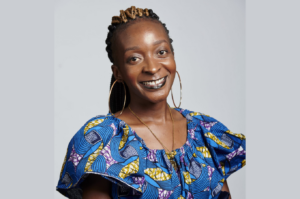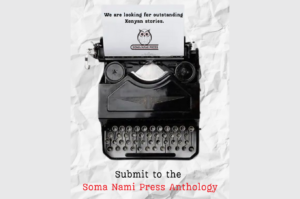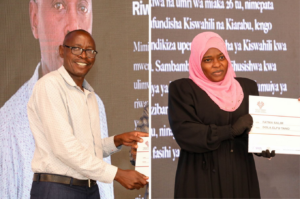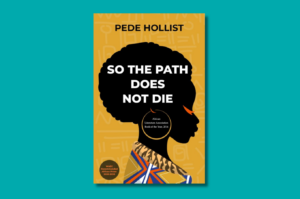
South African writer Sarah Isaacs was shortlisted for the Island Prize for her fiction manuscript “Glass Tower.” The recently launched The Island Prize is a manuscript prize awarded to African writers for their debut fiction.
In the first of a series of Q&As with shortlisted authors, Isaacs talks about her manuscript, what inspired it, and what the one-year journey of drafting it was like. Isaacs is a writer and visual storyteller based in Cape Town, South Africa. In 2018, she worked on a project that made space for gender based violence survivors to speak their truth. This project laid the groundwork for a 2019 TEDx talk, titled “The Vulnerability-Victimhood Paradox”, in which she explored “survivor shame and its implications for the expression of vulnerability.” She currently has an MA in Creative Writing at UCT and hopes to write full time.
***
Interviewer
Tell us a little bit about your novel “Glass Tower”
Sarah Isaacs
“Glass Tower” is a story about a young friendship between Leilah and Frankie, two teenage newcomers to a middleclass government school in Durban, South Africa. It’s set in the late 1990’s, a period of flux following the country’s first democratic election, and it’s within this context of social change and discomfort that these two very different outsiders come to grips with their changing bodies and place in the world. Bound together by a growing affection and a joint curiosity in their burgeoning sexuality, Leilah and Frankie come to share their deepest secrets with one another, an unveiling that stretches the limits of their friendship and pushes Leilah, the protagonist, to discover parts of herself that without Frankie she would have left in the dark.
Interviewer
What inspired it?
Sarah Isaacs
I’ve always been drawn to stories that explore the hurdles teenagers face when making the transition from girl to young woman. It’s a strange and interesting time, plagued by questions that we don’t have the self-understanding, or even vocabulary, to answer. It was only in my mid-thirties, with two decades of distance, that I felt steady enough to explore that period of great unknowing. I set out to write a story about friendship — our first affectionate bond outside the family unit — while also touching on the big-picture shifts that were happening in South Africa at the time the story is set. Like Leilah, I am mixed-race, so it was an opportunity for me to explore my mixed identity in the very personal space that fiction offers.
Interviewer
When did you first start writing?
Sarah Isaacs
I’ve been writing personal essays since I started high school and worked for a travel magazine in my twenties that led to a few printed articles. “Glass Tower” was my first focused attempt at fiction, although I’ve wanted to be a novelist for as long as I can remember. I have countless scribblings of detached scenes and pieces of characters, but until very recently, lacked the belief that I could string anything together within a coherent storyline.
Interviewer
What do you feel are your strengths and/or weaknesses as a writer?
Sarah Isaacs
Strengths: I like listening to people and I have an appreciation for the sound and tempo of the written word. I’m highly sensitive to smells, sounds, tastes and physical touch, which is a pain in real life but comes in handy when I write.
Weaknesses: They say you should write 750 – 1000 words every day if you want to be taken seriously as a writer. Five hundred is a very good day for me, and it’s usually followed by a day of despising those words, and another of editing them to near-death before I can start on the next five hundred. I fear that I lack the imagination it takes to be a novelist. I would really struggle, and most likely fail, at creating a completely fictionalized world. I rely heavily on others’ stories, and my interpretation of those stories, as source material.
Interviewer
What problems do you believe writers from Africa face?
Sarah Isaacs
Making a living. It requires a great deal of time to write anything passable, and with so few opportunities to be published in our home country, let alone abroad, it’s near impossible for most of us to quit our jobs and take up writing full time. If we do happen to find a publication or publisher who believes in our work, how it will be received by an international audience remains a big concern. Americans, for example, can write a story and trust that readers will understand the context and nuance. African writers constantly have to ask what needs to be explained or altered to make sense to a wider readership, without losing the personal edge that makes any story worth reading.
Interviewer
How have you found the experience of being shortlisted for The Island Prize?
Sarah Isaacs
Overwhelmingly reassuring. Writing a complete manuscript was the most grueling professional task I’ve ever undertaken, perhaps because there is no line separating yourself from the work. For the year it took me to write “Glass Tower”, I thought of little else, and became even more reclusive than usual. When it was done, I felt a certain degree of satisfaction, but more than that I was unsettled by the question of where it might land. The Island Prize team – in particular Karen Jennings and Robert Peett – assuaged some of that worry. Their belief in the shortlisted stories, and the time they’ve invested in us since the shortlist was announced, has felt like a nudge to keep going. That’s all any writer starting out can hope for, a path to follow when you’re tired and full of doubt.
Interviewer
What are your writing plans in the future?
Sarah Isaacs
I’m working on a second manuscript about a newly married South African couple on honeymoon across south and central America. It has the peculiarity and tension of a thriller, towing the line between fantasy and reality, but at its core, it’s a story about a two people trying desperately to figure each other – and themselves alongside the other – out. Their bond is characterized by warmth as much as dislike, feelings of belonging and alienation, and the burning question of whether choosing partnership over solitude is worth it.









COMMENTS -
Reader Interactions